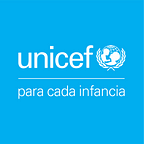Preventing for yourself and for the life you carry in you
San Jorge La Laguna is one of several communities located against the impressive and beautiful backdrop of Lake Atitlán and the volcanoes surrounding it. It is not easy for most of its inhabitants to leave this place to access basic services such as health. However, for some time, thanks to UNICEF’s support, HIV tests are being conducted, especially on pregnant women, to protect them and their future babies. This has the double benefit of increasing the number of women who decide to take the test at the community health service and save them the expense and time required to travel for testing. Irma Matsercá, 17, lives here. She is seven months pregnant and underwent the HIV test.
More than 36,000 persons living with HIV have been reported in Guatemala.
The epidemic is said to be “controlled”, but it is still a mortal risk.
UNICEF and its partners promote early detection of the virus through a quick test conducted by health staff for HIV, syphilis and hepatitis B on pregnant women in their own communities.
Irma was advised at home that the HIV test was being administered. She took the test to know if she was a bearer of the virus. The test result was negative — Irma and her baby have no evidence of the virus.
Irma says that before she underwent the test she knew nothing about HIV. Now she manages more information. As she says, “What I know now is that HIV is a disease that is very bad for people. Women and their babies can be affected and that is why every woman should take the test.” The test is very simple.
Irma: “The first thing they did was ask me to fill in a form with information about myself. Then they drew a drop of blood. It is not painful. You don’t have to wait for more than a minute to get the result.”
Irma adds, “I think it’s good that they came here to do the test. In the past you had to travel and pay for the test. Now it is free. Although it is not mandatory, it is good to take the test for your sake and that of the baby, since we carry a life in us.”
Finally, Irma notes that she was very well treated at the health center; they are very nice to her.
An important player in motivating pregnant women to take these tests is the midwife. She is part of a tradition, a person who is firmly rooted in the community and respected by it. In Irma’s case, a midwife went with her to the health center, advised her and calmed her fears. She told her to be at ease, to relax, that it was very important for her to be tested, especially because of the advanced stage of her pregnancy.
Another aspect to consider is the warm treatment received by women at the health center that carries out these tests. The nurses in charge understand that the women who come are nervous, especially considering the possibility that one of them might test positive, that she has HIV, which will mean a difficult situation for the woman, her baby and her entire family.
For this reason, the nurses in charge of the tests tell the women about the procedure, that it is painless and quick and that results can be obtained immediately. They also tell them that if the result is positive, it must be confirmed. This is done by sending the test to a laboratory in Guatemala City in order to be sure of the result and manage the situation with the patient.
UNICEF and its partners are working to prevent this pandemic, and especially to prevent transmission from the pregnant woman to her future child.
